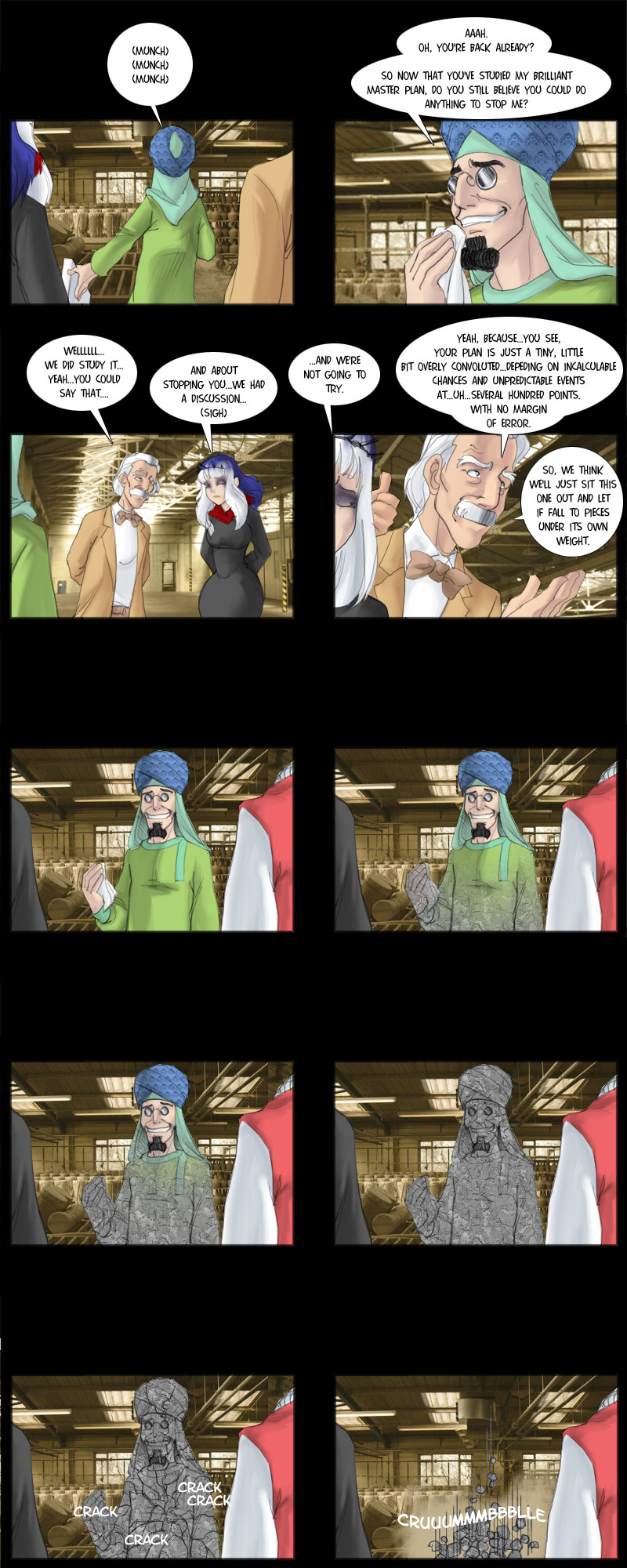

Today’s episode has been brought to you by the letter “R” as in “reality”.
It’s a problem villainous plans tend to suffer from – not only in B-movies, but in A-movies as well, if to a smaller degree. Scriptwriters often get away with it (or at least sufficiently far away) by revealing the villain’s plan only after the fact, or rather after all but the final fact. Looking back, the sequence of events might then seem more or less plausible at all of its stages.
Which neatly covers up the fact that planning works the other way round, looking forward – and to make the desired outcome anything like likely, the villain would have had to make sure that things don’t only plausibly go his way at any given stage. They’d have had to be completely or almost completely sure of the outcome at every single stage, since the margins of error add up.
And the more stages the plan has, if the outcome is not truly 100 % certain, the greater the chance of ultimate failure, due to the accumulated margins of error.
Naturally, this is particularly pronounced in the case of any plot involving time manipulation. Not only do they tend to rely on very long sequences on events from the start, they would also require the villain to correctly predict the effects of alterations at the earlier stages on the circumstances of later ones. Again, these predictions would not only have to have a high probability, they would need to be all but certain.
In short, even if Dr. Dutchman Fu’s bizarrely long and meandering plan would have the balance of probability firmly on its side at every single stage, it would be bound to fail, simply due to its length and the accumulated probabilities of failure (even if small) at so many interdependent stages.
Or in other words, screw or no screw, the screwy plan is bound to get screwed up so badly, our heroes* see no reason to screw with it any further.
More on Thursday.
* Yeah, they all agreed on that. The Professor and Mopey understood the probabilities, and Biff had the empiric data: he’s never succeeded at any plan that had more than one stage.